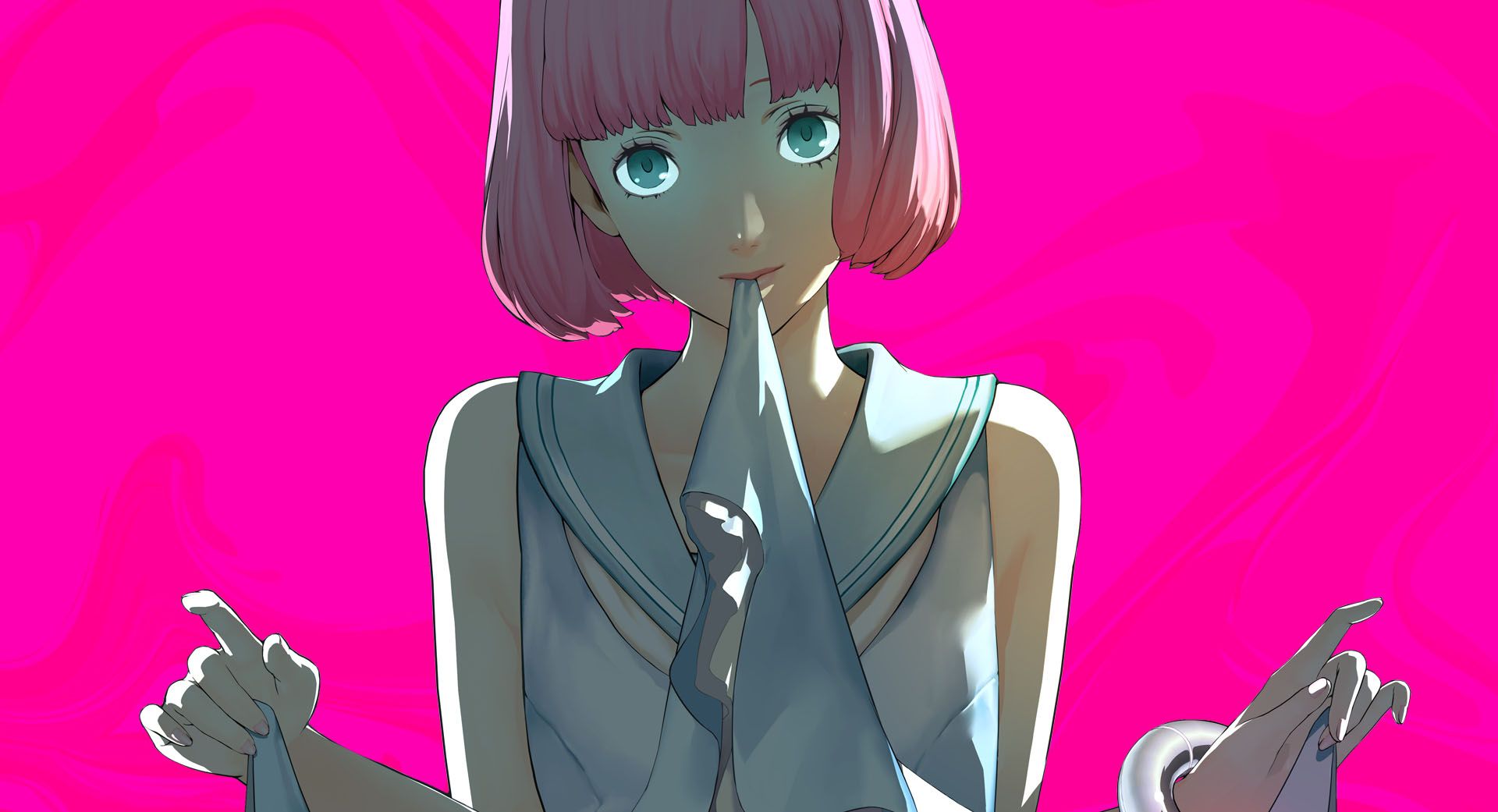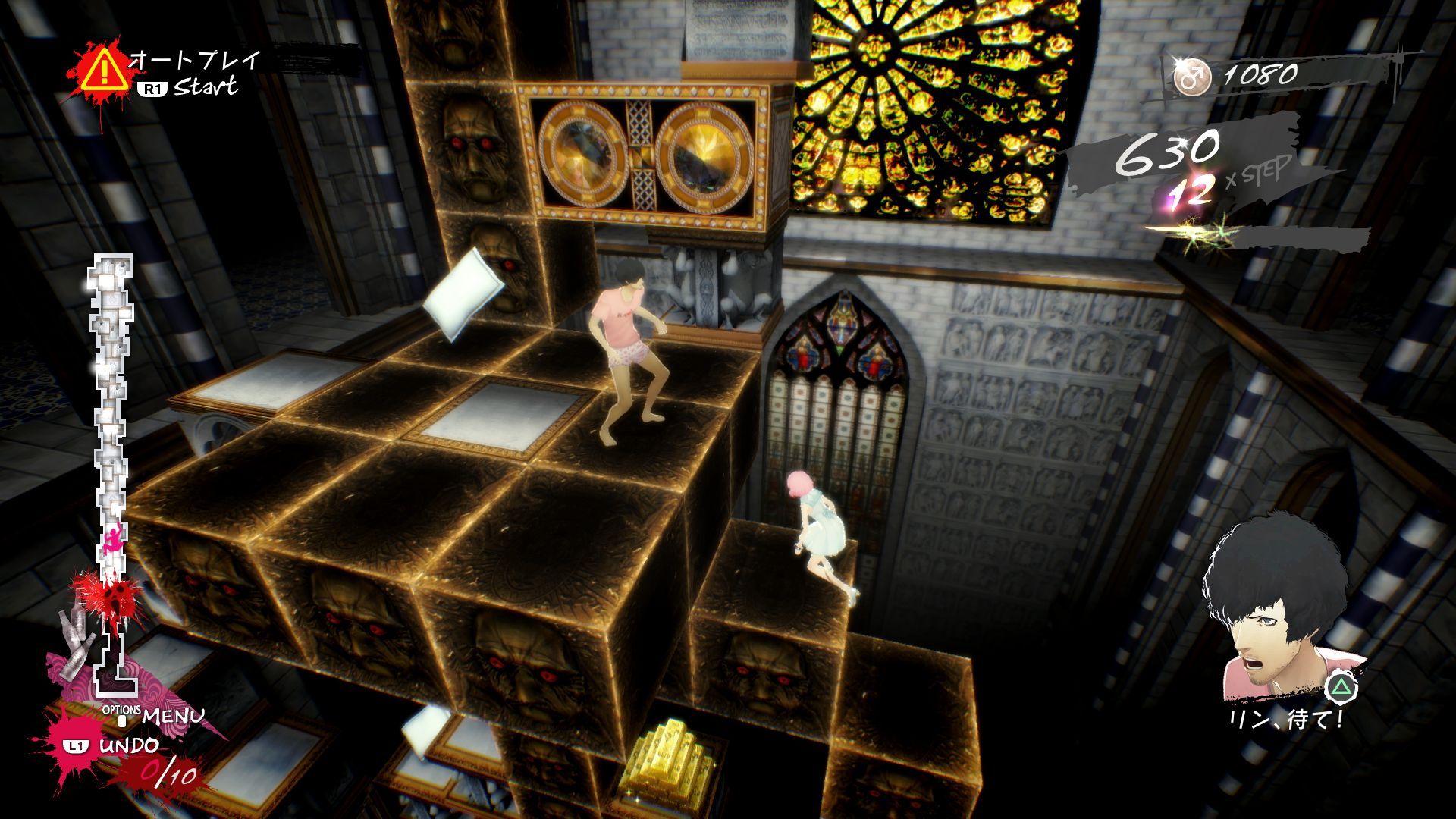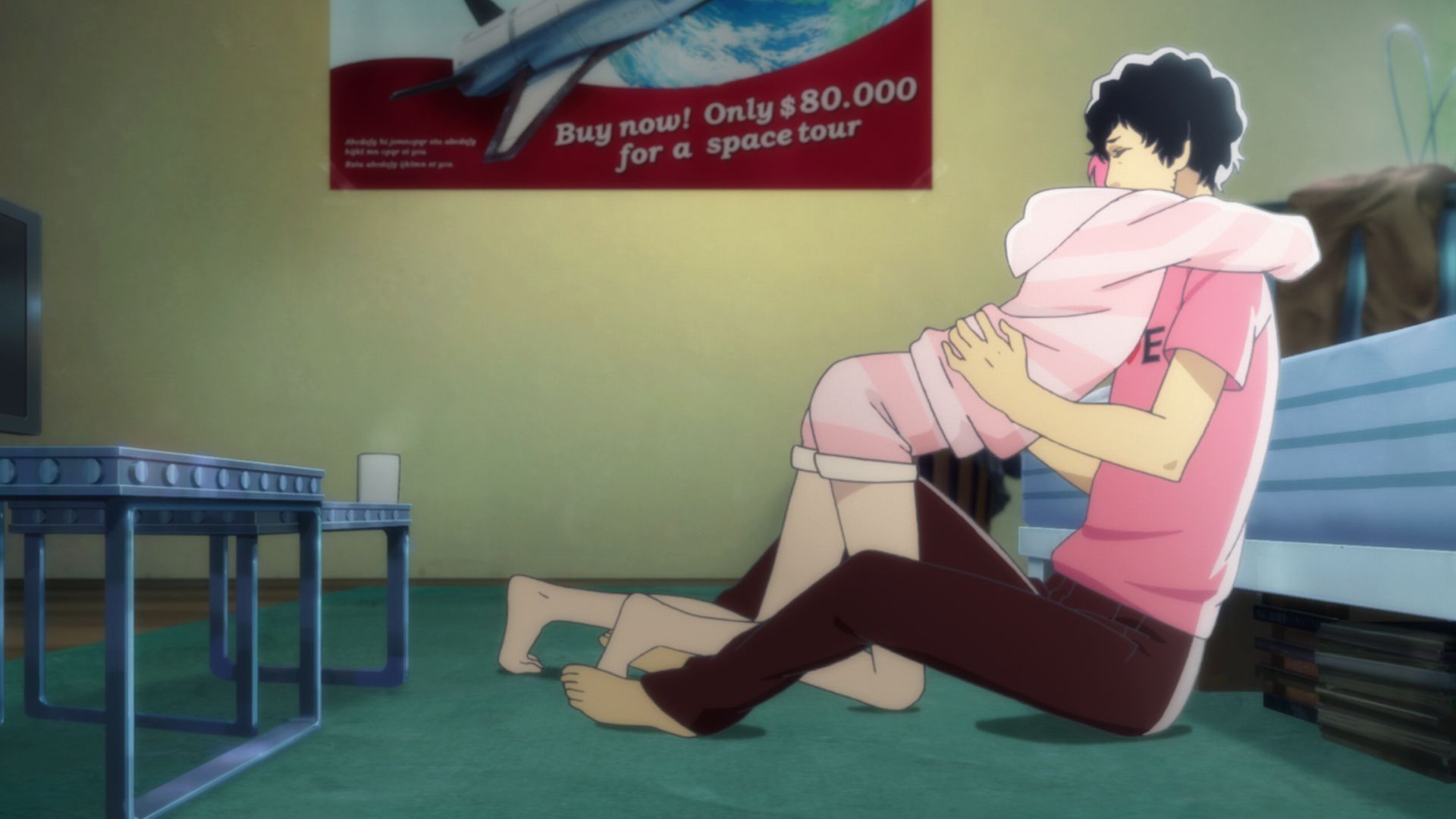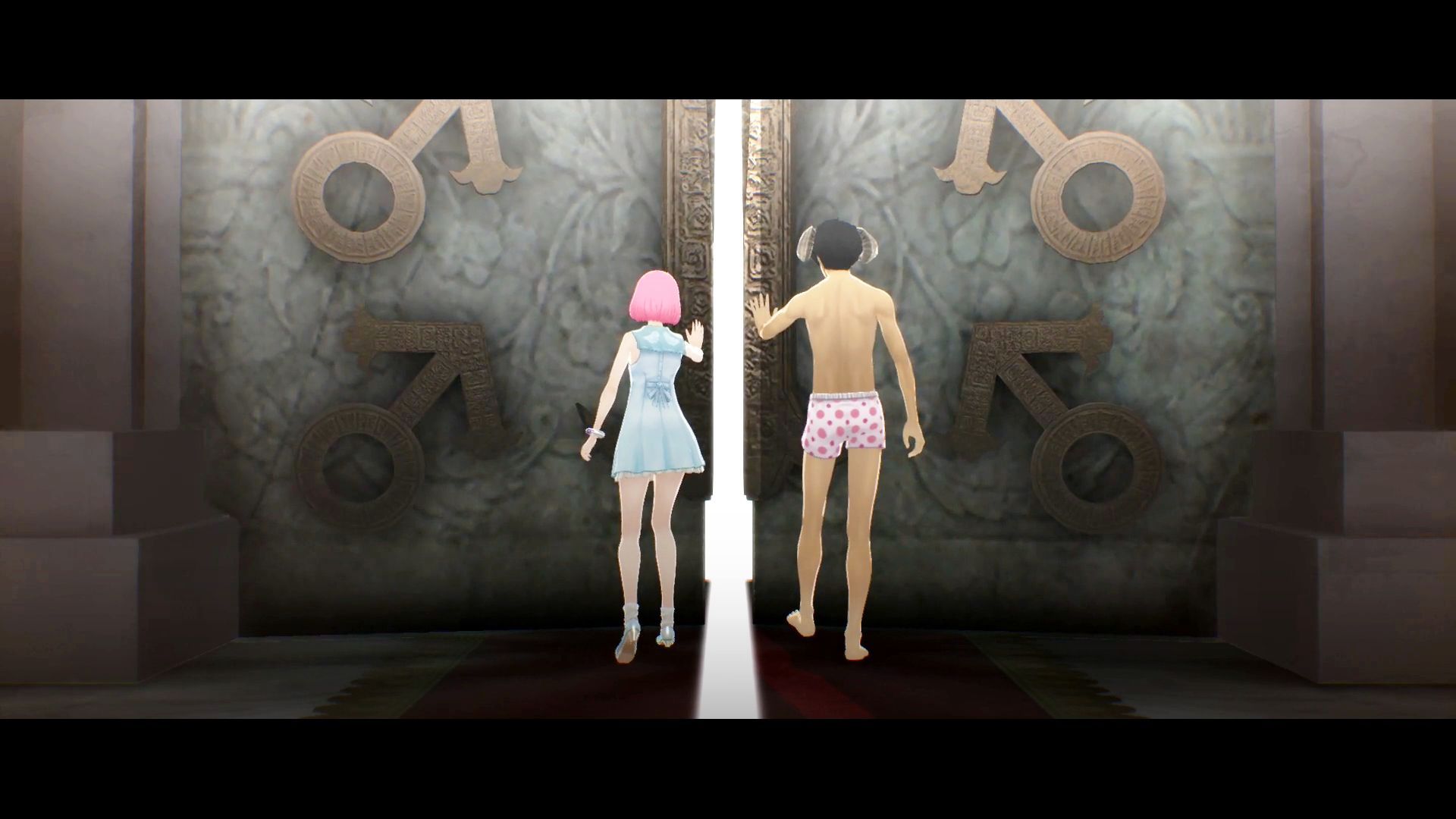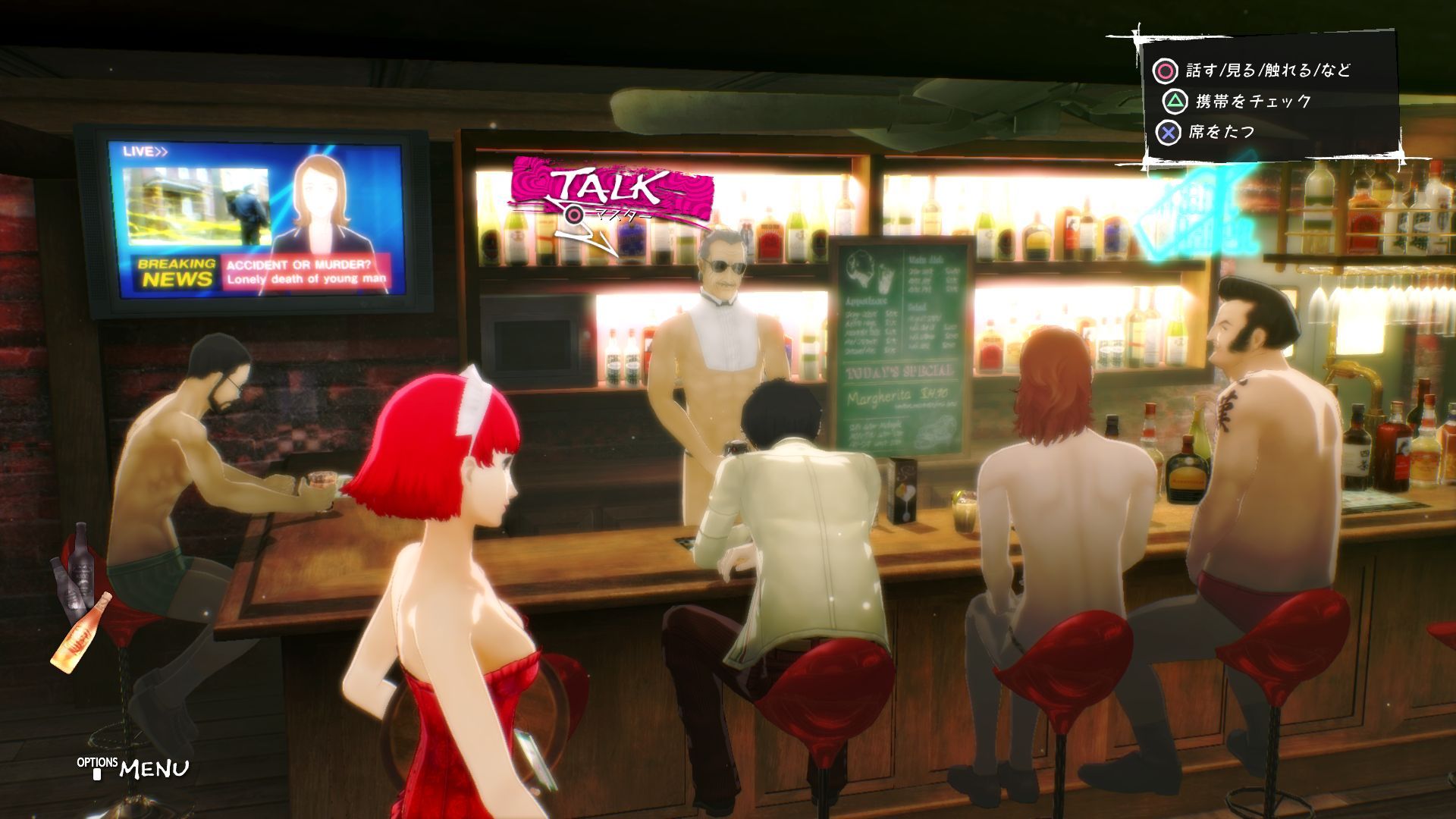When Atlus first released Catherine in 2011, the puzzle-platformer became a phenomenon in ways that the developers didn't anticipate. Not only were the unconventional gameplay mechanics and story praised, but Catherine somehow ended up with a competitive scene. With a re-release through Catherine: Full Body, Atlus has the rare opportunity of a second chance in developing the same game, with experience and feedback in tow.
But that second chance also allowed Atlus to remedy some regrets that came about after the game's initial release, not so much with gameplay but more so with content. Western localizers were handed a problem: a growing controversy within queer and trans spaces in gaming about the characters of Rin and especially Erica. The original game already had a mixed legacy with the latter character, but new story content leaked from the Japanese release of Full Body caused a stir.
At E3 2019, I was lucky enough to speak to Jonathon Stebel, the communications manager for Sega of America and Atlus USA. After getting hands-on time with the game myself, Stebel and I had a very candid discussion about the aforementioned controversies and the process of localizing games like Catherine to the rest of the world. In case it somehow wasn't obvious to everyone, localization is a far more complicated process than putting words through Google Translate.
Catherine: Full Body isn't exclusive for those who have played the original game; it's that game and more. Neither a sequel nor a remaster, Full Body is a bit of a Catherine 1.5, with new content weaved in-between content from the original game. The story should feel fresh to newcomers while offering enough noticeable new bits for veteran players. Count me amongst the former, as this demo was the first time I got my feet wet with the game.
If you aren't familiar with the story set-up, the player takes control of Vincent, who is caught in a sticky love triangle. Dating a girl named Katherine, Vincent finds himself in a messy affair with a different girl named Catherine; somehow, this results in reoccurring nightmares where Vincent has to climb a shiftable tower, away from demons in pursuit of him. Catherine: Full Body also introduces a new love interest nicknamed Rin, who even showed up in the nightmare sequence that I played.
While the original game had eight endings, Catherine: Full Body touts an additional five endings, bringing the total to 13. What I was particularly interested to hear about was how the game's competitive scene affected any adjustments made to the gameplay when developing Catherine: Full Body; according to Stebel, the developers at Atlus were actually "confused" upon hearing about the competitive nature of their game.
[pullquote]"The story should feel fresh to newcomers while offering enough noticeable new bits for veteran players."[/pullquote]
This time around, Atlus consulted a number of competitive Catherine players for changes, additions, and updates for the re-release. The game's multiplayer mode has new stages, new items, and online multiplayer, as the original only had local multiplayer. And for good measure, Stebel said that he was continuing to work with the competitive community to learn how to better support them for tournaments, events, and the like.
In general, Atlus says that Catherine: Full Body has a number of quality-of-life changes that will help new players learn how to play the game. As I learned from the demo, I could have certainly used all the help from the game I could get as I attempted to wrap my head around the climbing and block-pulling mechanics. Should all go wrong, Catherine: Full Body does have a new "Safety" difficulty setting that removes traps and time limits.
The voice cast is back together again, with the added addition of Brianna Knickerbocker as Rin. Atlus cleaned up the older dialogue and brought everyone else to record lines for new content, with voice actors having the challenge of getting back into character (with the same pitches and all) ten years after the original voice sessions. Stebel didn't have an exact number on how many hours the new content added to the original game, but he gave a roughly 60-80 hours estimate for getting all of the endings.
[pullquote]"Atlus consulted a number of competitive Catherine players for changes, additions, and updates for the rerelease."[/pullquote]
After the demo, I jumped straight into the content controversies with Stebel, first bringing up the controversy about the leaked Japanese-language ending. The leak, as unofficial translations described, detailed one new ending of Catherine: Full Body in which all of the characters are "happier" in an alternate timeline. One result seemed to be that transwoman character, Erica, never transitioned in the first place. "It's the biggest topic of discussion for Catherine: Fully Body," Stebel stated, very willing to engage the subject.
"What we do in localization is so complex that anyone who tries to grab an individual scene from a Japanese game and translate it themselves, they're not going to get the full context of what's going on. There are various timelines in play, there are various motivations in play that really get lost without the context of the entire game leading up to the scene we're discussing now. So in terms of content between the Japanese and Western releases of the game, there is not going to be anything that is disingenuously represented—you're going to get the same game as Japan."
Stebel then brought up a small but meaningful change from the original game to Catherine: Full Body—Erica was deadnamed in the credits of the original game, "deadname" being a term used by trans people referring to pre-transition names. Catherine: Full Body (and the PC release that came out earlier this year) corrects this in its credits, with Stebel directly using the term "deadname." At the very least, this is a potential indicator to concerned trans players that the localization team is aware of the vocabulary and are operating in some degree of good faith.
Stebel continued:
"A lot of the members of the localization team for Full Body worked on the original Catherine as well. We always do post-mortems for games; we look back and say, 'what could we have done better?' Many years ago, we said 'if we ever do Catherine again, probably shouldn't deadname Erica.' But I think for that scene in question, there's just context, there's misinterpretations, mistranslations out there and it's hard to get the actual story. But even as a PR person living in 2019, I'm not really concerned about that scene. You will need the full context to really understand what's going on there and come up with your own interpretation afterward."
It's an answer that may satisfy many, but I can imagine a few points where trans players would still raise flags at. While there may indeed be a lack of context, it wouldn't be helpful for the game's story to be left open enough to interpretation to leave the possibility of anything transphobic. I brought up the imagery of Vincent being shocked at some sort of body-related reveal from Rin, coming from a scene that isn't what it appears to be without context but still has transphobic coding.
"I can't speak for the Japanese promotion," Stebel said responding to my point about that coded imagery being used to promote the game, "but I would say that the full game is not like that." Stebel mentioned to me that the localization team has an internal cultural view committee that reviews everything from overseas to ensure that content is "suitable for a Western audience" while also representing that content "genuinely."
Stebel emphasized the number of hours in the past eight or nine months put into the process from the QA team, the production team, and the localization team about the content, with Stebel expressing few concerns after this long process. "But again, people can come up with their own interpretations of the game, and that's totally fair. We're not here to tell people what they should think of the game either. So I think it's going to cause a lot of discussions, but that's probably a good thing in the long run, too."
It's a rare opportunity for artists to have another go at their original work, but it won't be until we have the final copy of the localized version when we figure out whether or not the second chance was worth it. Revisiting the game did have Stebel think back to some checkpoints in his own life, and that of his colleagues as well. "Eight years ago, I was playing the original Catherine with my friend, and we played through it, loved it, helped each other with the puzzles—and now eight years later, he's the localization producer on Catherine: Full Body, and I'm doing PR on it."
When talking about Atlus's philosophy on localization, Stebel had the following to offer:
"I think Atlus and Sega take so much of a different approach to localization than I think any other localization team out there. When you play an Atlus or Sega game, you should feel, 'wow, this is hella Japanese,' because we try to maintain that super Japanese-ness of it to educate the West on how the game is received by locals in Japan. We're not trying to change things to add in Western memes or references that only Westerners understand; we want to maintain everything while ensuring that the game is still understandable to the West."
Certainly, a topic of discussion that will come up from Catherine: Full Body involves the cultural differences between Japan and the West regarding queer people—should any of that "hella Japanese" content involve anything deemed problematic, how should localizers handle it? One thing is for sure: the job is much harder than one would expect. Said Stebel: "I started with Atlus a year and a half ago, and I was like, 'Hey, you guys just translate games, right?' No. It's so much more than that."
Catherine: Full Body is coming to the rest of the world on September 3, exclusively for PlayStation 4 in the West.

